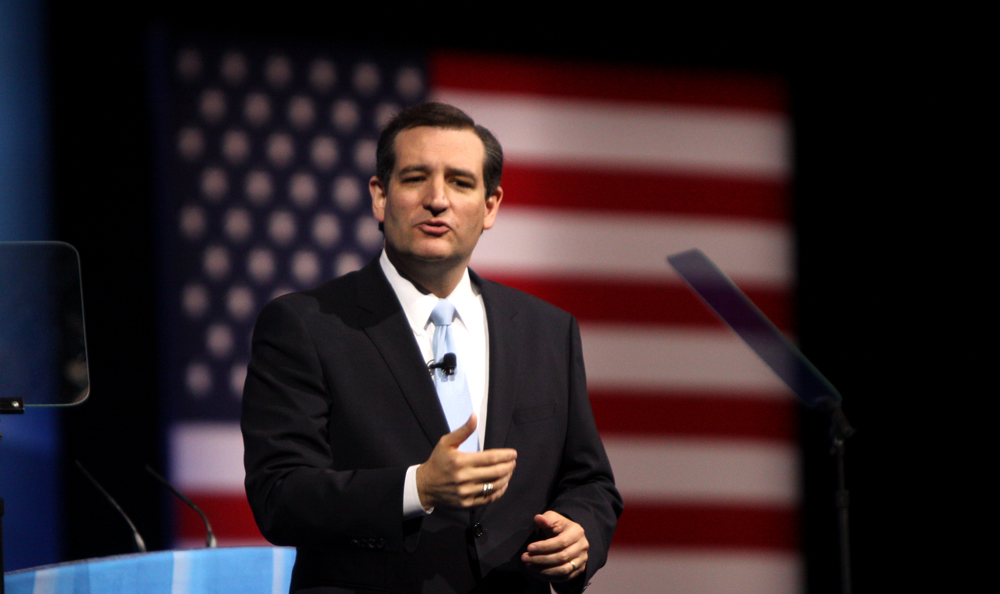This Calverton man wants to get Ted Cruz off the ballot


Republican presidential candidate Ted Cruz notably pointed to the “New York values” of billionaire Donald Trump during a recent debate. Now, one New Yorker is questioning the values of Mr. Cruz, saying he shouldn’t even be on the ballot in the New York GOP primary since he wasn’t born in this country.
Calverton resident Greg Fischer — a man who has made several attempts at public office and maintained he will still run “at least once a year forever” — has written a letter to the state Board of Elections objecting to Mr. Cruz’s name on the ballot.
“Ted Cruz is not a ‘natural born citizen’ and is thus ineligible to run for the Office of the President of the United States,” says Mr. Fischer’s letter, citing Section 1 of Article II of the Constitution.
Similar concerns have been raised in other states in recent weeks, after Republican presidential candidate Donald Trump made Mr. Cruz’s citizenship status an issue prior to the Iowa caucuses. Other complaints have been dismissed in both Illinois and more recently, in New Hampshire.
Mr. Cruz, a Texas Senator elected in 2012, was born in Calgary, Canada to a mother who was born in Wilmington, Delaware.
Mr. Cruz defended himself at a Town Hall event in New Hampshire last week, stating that “under U.S. law, the child of a U.S. citizen born abroad is a natural born citizen. That has been true from the very beginning of the country.”
Mr. Fischer — as well as Mr. Trump — aren’t so sure. While the issue may be more personal for Mr. Trump, for Mr. Fischer, the issue has nothing to do with the Texas Senator on a personal level. Mr. Fischer, a Democrat, said he doesn’t even foresee Mr. Cruz — who won the Iowa caucus — as the eventual Republican nominee.
“The truth of the Constitution is very specific,” he said. “There are skilled legal historians that have made it very clear that [the presidency] is not to be for naturalized citizens,” he said on Saturday.
Mr. Fischer’s letter notes the following: “The willful 2014 Canadian citizenship of Ted Cruz highlights his conflicted dual-citizenship (and possibly mixed loyalties) demonstrating an important (but prohibited) element (a prohibition on non-U.S. citizenship) underlying the legislative intent of the U.S. Constitution for prohibiting someone other than a natural born citizen from seeking to assume, or even run for, the Office of the President of the United States.”
Mr. Fischer has tasted some success in the past in getting a candidate’s name removed from a ballot. In 2010, state Sen. Ken KaValle’s campaign successfully challenged the residency of Regina Calcaterra, a Democrat who was going to face him in the general election. State courts eventually ruled her ineligible to run. Mr. Fischer, who has sought the Democratic nomination to oppose Mr. LaValle in the past, was the first to bring the issue to light.
Suffolk County Board of Elections Commissioner Nick LaLota said Mr. Cruz’s birthplace or citizenship status was “not germane” to whether or not he would be allowed to appear on the ballot in New York State’s primary, which is set for April 19.
Per state rules, all a candidate needs in order to earn a spot on the ballot is to be “nationally known,” eligible for presidential primary matching funds, or to have filed a petition with 5,000 signatures. Appearing in a debate generally satisfies that first requirement, Mr. LaLota said.
Mr. LaLota said the primary is to align how New York State’s at-large delegates are apportioned, so it’s largely outside of the BOE’s purview.
Mr. Fischer acknowledged that filing an objection through the BOE might not have been exactly the right venue to keep Mr. Cruz out of the White House. And in fact, the ruling by New Hampshire’s Ballot Law Commission in defending Mr. Cruz’s right to remain on the state ballot said “a court equipped to decide such Constitutional matters” should probably clear up the definition of “natural born citizen” to avoid future uncertainty.
Mr. Fischer said he hasn’t ruled out filing a federal lawsuit, though he admits that might be too costly.
“This could wind up in the Supreme Court — if Trump doesn’t get there first,” Mr. Fischer said.
Photo credit: Gage Skidmore/Flickr








